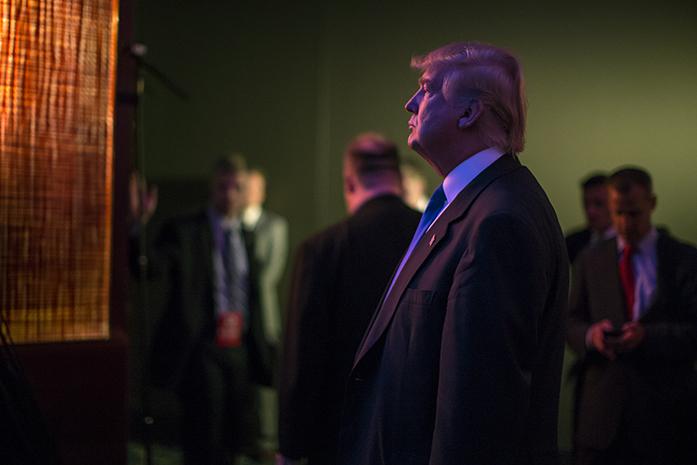Amid all the name-calling, lies, and general nastiness that has come to pass in this particular election cycle, one legitimate issue has risen to the forefront in rhetoric from both the Republican presidential front-runner and the Democratic underdog: trade.
Donald Trump’s favorite stump speech topic is that the United States doesn’t “win” anymore, largely because of the imbalance of imports and exports known as the trade deficit. Trump contends that the United States has a $500 billion trade deficit with China, though the true number (from 2015) is closer to $343 billion. Regardless, it is approximately a 6.6 percent jump over that of 2014. Meanwhile, Sen. Bernie Sanders has called trade deals such as the Trans-Pacific Partnership “a disaster for the American worker.”
Other Republicans and Democrats, however, have largely ignored the issue of trade in election cycles. Congressional representatives of both parties have supported deals like the Trans-Pacific Partnership, which aims to eliminate tariffs on a myriad of products and strengthen legal agreements on intellectual property, among other things.
To be fair, there have been rumblings of dissent to the axiom that free trade provides universal benefit to all the parties involved. In 2015, 50 House Republicans opposed the “fast-track authority” for the latest trade deal, which would have allowed the president to negotiate the terms of the agreement without congressional approval.
But trade has heretofore been considered largely as an issue to be worked out in the drudges of the legislative process, not a central bullet point in campaign speeches. When we muse about why politicians such as Trump have become so popular, the typical rationale offered by so-called experts is that the American populace is disaffected and willing to elect an outsider to send a message.
Depending on one’s politics, this is often followed by the notion that Trump is either speaking out against political correctness or channeling an undercurrent of hate that has lain dormant for years.
But both these explanations fail to account for the very real effects of globalization and free trade as they relate to many voters. Globalization has expanded the role of international trade and helped to lift up poverty-stricken nations. It has indisputably made the world richer. But what is good for multinational corporations and workers in Asia doesn’t necessarily translate to prosperity for middle-class families in America.
The most visible effect has been the disappearance of manufacturing jobs in the United States. . That Trump has drawn support from the poorly educated should be no surprise: Their jobs have been outsourced to such countries as China, India, and the Philippines.
Whether increasing barriers to trade would actually benefit Americans is up for debate. But pundits should not easily dismiss voters’ frustration with the political establishment and the subsequent support of Trump as the cries of a racist section of the electorate.
The candidate has given voice to an idea that is hard to pin down, and he has done it in a way that resonates with a significant number of people. Trump may end up eventually shooting himself in the foot with his rhetoric, but a more palatable candidate may find success by repeating his message on trade.



